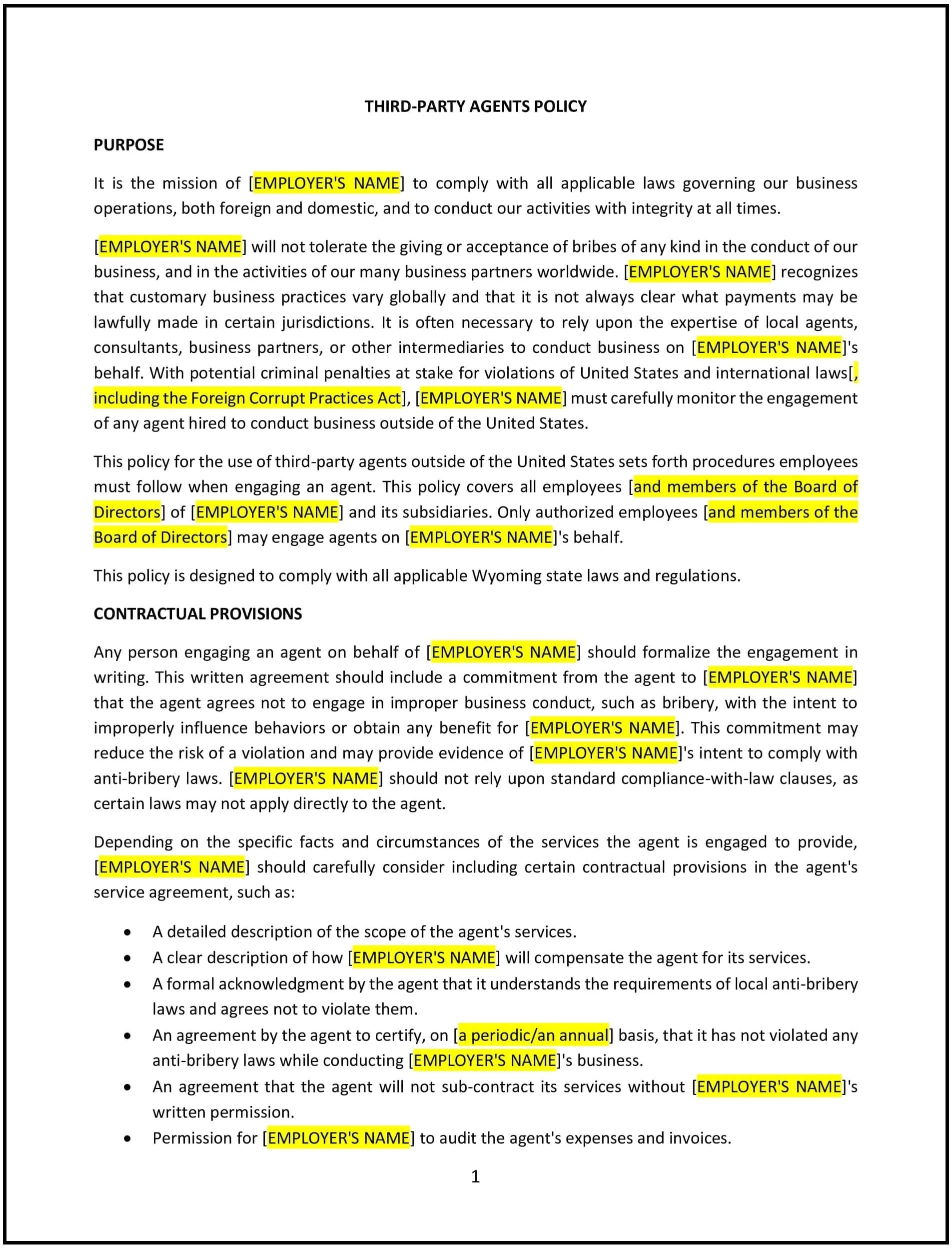Got contracts to review? While you're here for policies, let Cobrief make contract review effortless—start your free review now.

Customize this template for free
Third-party agents policy (Wyoming)
In Wyoming, a third-party agents policy provides guidelines for managing relationships with external agents, contractors, or representatives who act on behalf of the company. This policy helps third-party agents align with the company’s standards, values, and supports adherence to compliance requirements.
This policy outlines expectations, responsibilities, and procedures for engaging with third-party agents, reducing risks and fostering transparent partnerships.
How to use this third-party agents policy (Wyoming)
- Define third-party agents: Clearly specify who is considered a third-party agent, such as contractors, consultants, or vendors acting on the company’s behalf.
- Outline selection criteria: Provide guidelines for vetting and selecting third-party agents, including background checks, references, and performance evaluations.
- Set expectations: Include specific expectations for third-party agents, such as adherence to company policies, ethical standards, and legal requirements.
- Establish monitoring procedures: Detail how the company will monitor third-party agents, such as periodic reviews, audits, or performance evaluations.
- Support compliance: Align the policy with Wyoming laws and federal regulations to ensure legal adherence and protect the company from liability.
Benefits of using a third-party agents policy (Wyoming)
A third-party agents policy provides several advantages for Wyoming businesses:
- Mitigates risks: Reduces the risk of legal or reputational damage caused by third-party misconduct.
- Supports compliance: Aligns with regulatory requirements, minimizing the risk of violations.
- Promotes accountability: Sets clear expectations and consequences for third-party agents.
- Enhances transparency: Fosters trust and clear communication between the company and its external representatives.
- Adapts to local needs: Reflects Wyoming’s unique business environment and regulatory landscape.
Tips for using a third-party agents policy (Wyoming)
- Communicate effectively: Share the policy with all third-party agents and ensure they understand their responsibilities.
- Conduct thorough vetting: Perform background checks and ensure due diligence when selecting third-party agents.
- Monitor performance: Regularly review the performance and compliance of third-party agents to ensure alignment with company standards.
- Provide training: Offer training on company policies, ethical practices, and legal requirements to third-party agents.
- Review periodically: Update the policy to reflect changes in laws, industry standards, or organizational goals.